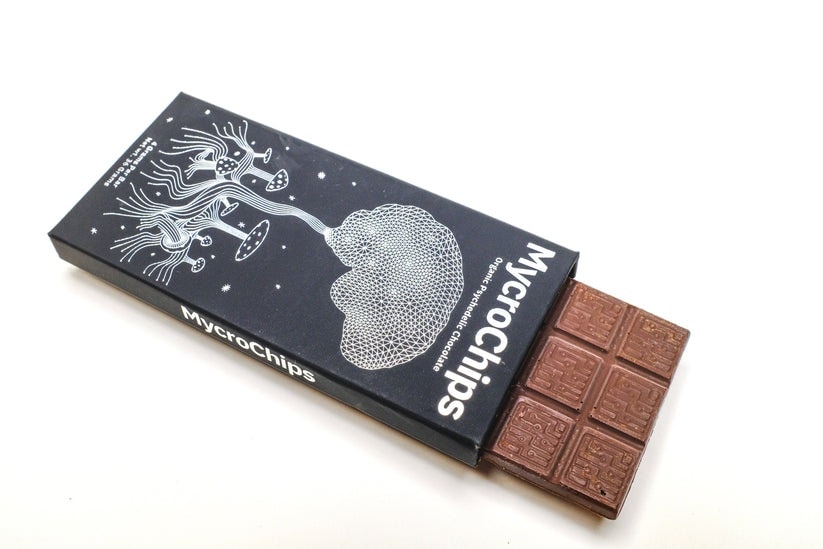In recent years, the wellness industry has seen a surge of innovative products claiming to enhance cognitive function, boost energy, and improve overall well-being. Among these, Mycrochips chocolate has emerged as a polarizing player in the market, sparking debates about the intersection of recreational substances, functional foods, and public health.
The Rise of Mycrochips
Mycrochips, a California-based company founded in 2022, markets itself as the “#1 Mushroom Chocolate Brand of 2024.” Their product line includes chocolate bars and gummies infused with what they term “functional mushrooms.” However, the nature of these mushrooms and the effects they produce have raised eyebrows among health professionals and regulatory bodies.
The Product and Its Claims
Mycrochips offers a range of chocolate products, including bars in flavors like Classic Dark Chocolate, Fruity Cereal, and Peanut Butter. They also produce gummies, targeting consumers who prefer alternative delivery methods. The company claims their products can:
- Increase energy levels
- Boost immunity
- Improve sleep
- Enhance cognitive function
- Support digestion
These bold claims have attracted a dedicated customer base, with many users reporting positive experiences. However, they’ve also drawn scrutiny from experts questioning the scientific basis of these assertions.
The Controversy
The core of the controversy surrounding Mycrochips lies in the nature of the “functional mushrooms” used in their products. While the company mentions using species like lion’s mane and reishi, which have been studied for potential health benefits, there are indications that their products may contain more controversial fungal components.
Psychoactive Properties
Some users report experiences that suggest the presence of psychoactive compounds in Mycrochips products. The company’s website includes dosage recommendations that raise questions about the nature of these “functional mushrooms”:
- Micro dose: 1-3 pieces, recommended for beginners
- Threshold dose: 4-7 pieces, for intermediate users
- Macro dose: 8-12 pieces, for “expert users,” leading to “hallucinations and supernatural experiences”
This graduated dosing system, particularly the mention of hallucinations, has led some to speculate that Mycrochips products may contain psilocybin or similar psychoactive compounds found in certain mushroom species.
Legal and Ethical Questions
The ambiguity surrounding Mycrochips’ ingredients has raised legal and ethical concerns. While the company operates openly, shipping products across the United States, the legal status of their chocolates remains unclear. This gray area has led to debates about consumer safety, product labeling, and the responsibilities of companies operating in the functional food space.
The Marketing Approach
Mycrochips’ marketing strategy leans heavily on the mystique surrounding their products. Their website employs language that hints at mind-altering experiences without explicitly stating the presence of controlled substances. This approach has been criticized by some as potentially misleading, while others view it as a necessary compromise in a complex regulatory landscape.
User Experiences and Community
Despite the controversy, Mycrochips has cultivated a loyal customer base. Online forums and social media groups dedicated to the brand are filled with users sharing experiences, dosage tips, and perceived benefits. Many users report improvements in mood, creativity, and overall well-being.
However, these anecdotal reports are balanced by warnings from health professionals about the potential risks of consuming unregulated products with unclear ingredients. The lack of long-term studies on the effects of regular consumption of Mycrochips products has been a point of concern for many in the medical community.
The Broader Implications
The Mycrochips phenomenon reflects broader trends and debates in society:
- The growing interest in alternative medicine and functional foods
- The shifting attitudes towards psychoactive substances, particularly in the context of mental health treatment
- The challenges of regulating products that exist in legal and scientific gray areas
- The tension between consumer demand and public health concerns
Regulatory Challenges
The case of Mycrochips highlights the challenges faced by regulatory bodies in keeping pace with innovative products. Current frameworks may not be adequately equipped to address products that blur the lines between food, supplements, and psychoactive substances.
Some argue for stricter regulation and clearer labeling requirements, while others advocate for a more nuanced approach that acknowledges the potential benefits of these products while ensuring consumer safety.
The Future of Functional Foods
As the debate around Mycrochips continues, it raises important questions about the future of functional foods and cognitive enhancers. Will we see a proliferation of similar products, or will regulatory crackdowns reshape the industry? How will society balance the potential benefits of these products with the need for safety and transparency?
Conclusion
Mycrochips chocolate stands at the intersection of several complex issues, challenging our understanding of food, medicine, and cognitive enhancement. As research into functional mushrooms and psychoactive compounds continues to evolve, products like Mycrochips may play a role in shaping public discourse and policy.
For now, the brand remains a lightning rod for debate, admired by its proponents for pushing boundaries and criticized by skeptics for operating in ethical and legal gray areas. As the functional food landscape continues to evolve, the story of Mycrochips serves as a fascinating case study in innovation, regulation, and the ever-changing relationship between consumers and the products they consume.
Regardless of one’s stance on Mycrochips and similar products, it’s clear that they represent a significant trend that will continue to challenge our notions of wellness, cognitive enhancement, and the very nature of food itself. As research progresses and regulations adapt, the conversation surrounding Mycrochips is likely to remain as complex and multifaceted as the products themselves.

